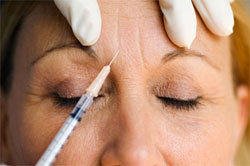Increased Botox Longevity With A Zinc Supplement
/ Botox & Zinc? Does Zinc make Botox last longer?
Botox & Zinc? Does Zinc make Botox last longer?
An American Academy of Cosmetic Surgery news brief has reported that a Houston oculoplastic surgeon, Dr. Charles Soparkar, has come up with a way to make Botox (and presumably all botulinum toxin neuromodulators) more effective and last longer. In a modified double blind, randomized, placebo-controlled, crossover pilot study and a subsequently completed formal study, the duration of effect was increased by 30% in over 90% of the patients studied. The study included both cosmetic and medical indications (blepharospasm, hemifacial spasm).
The theory goes like this: Botulinim toxin is very dependent upon zinc for effectiveness. Unfortunately, 50% of the US population is zinc deficient. Apparently, dietary zinc can be poorly absorbed due to binding elements found in many foods called phytates. Dr. Soparkar’s group posited that adding zinc to the diet of patients having a weak response or short duration of effect to botulinum toxin may be beneficial. Additionally, a phytate munching phytase enzyme was added to increase zinc bioavailability.
The result is a prescription medication called Zytaze. Each capsule contains 25mg of highly bioavailable zinc citrate and 1500 mg of Phytase. Patients take 2 caps daily for four days prior to AND on the day of injection. The drug is supplied in a 10 cap pack and cost $60 - $80. The result has been less frequent and decreased amounts of toxin needed and potential patient savings. (However, does the cost of the drug nullify these advantages?) This is great news for patients and a potential niche offering in the commoditized botulinum marketplace. Maybe not so great for practices depending on a high turnover of renewable products and services.
Who else has experience with Zytaze?





